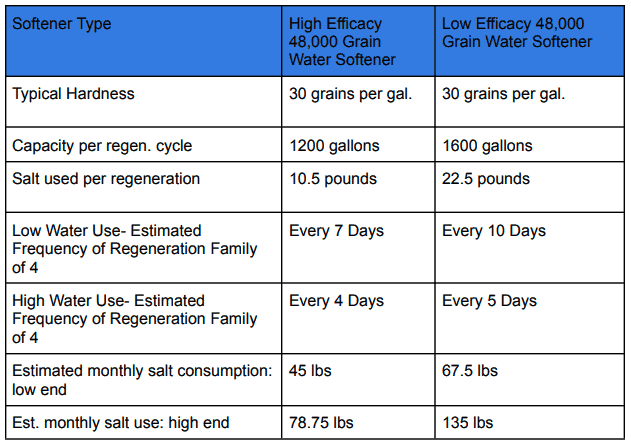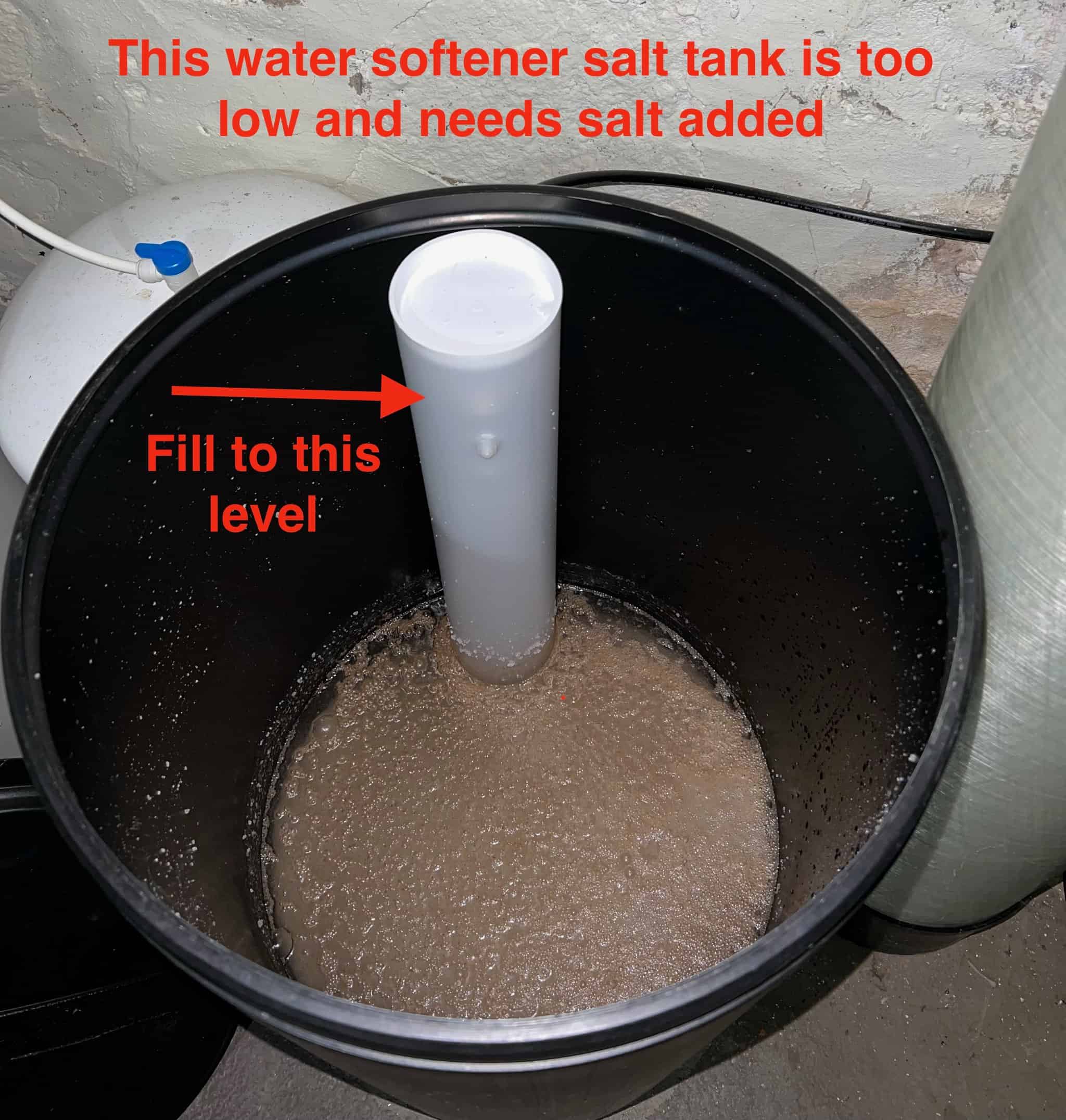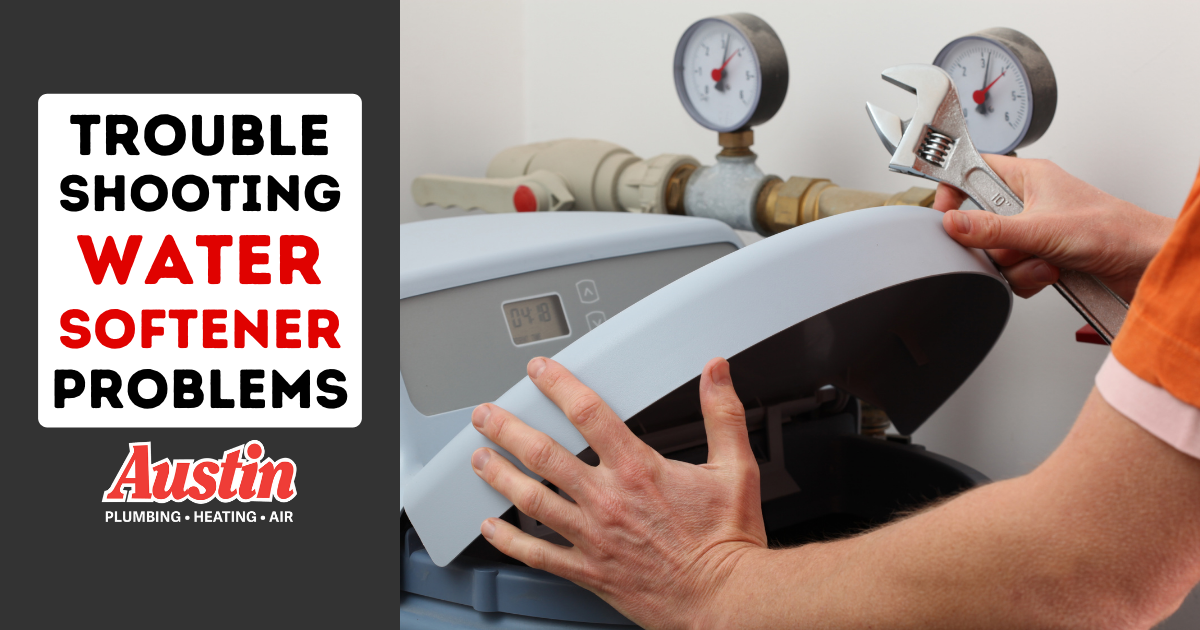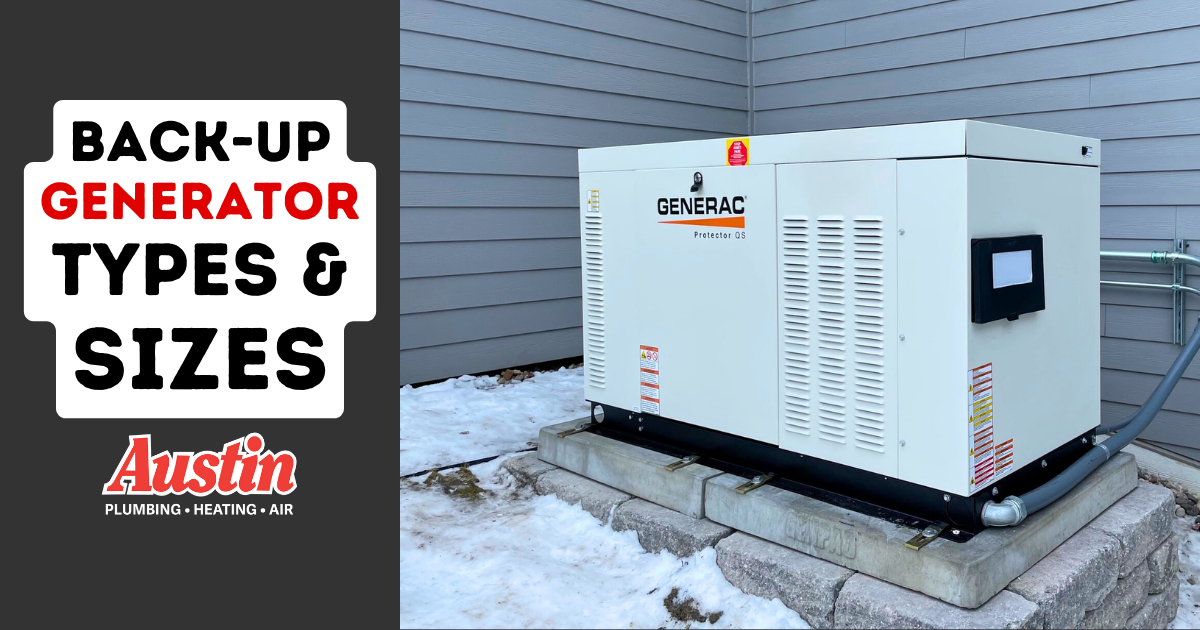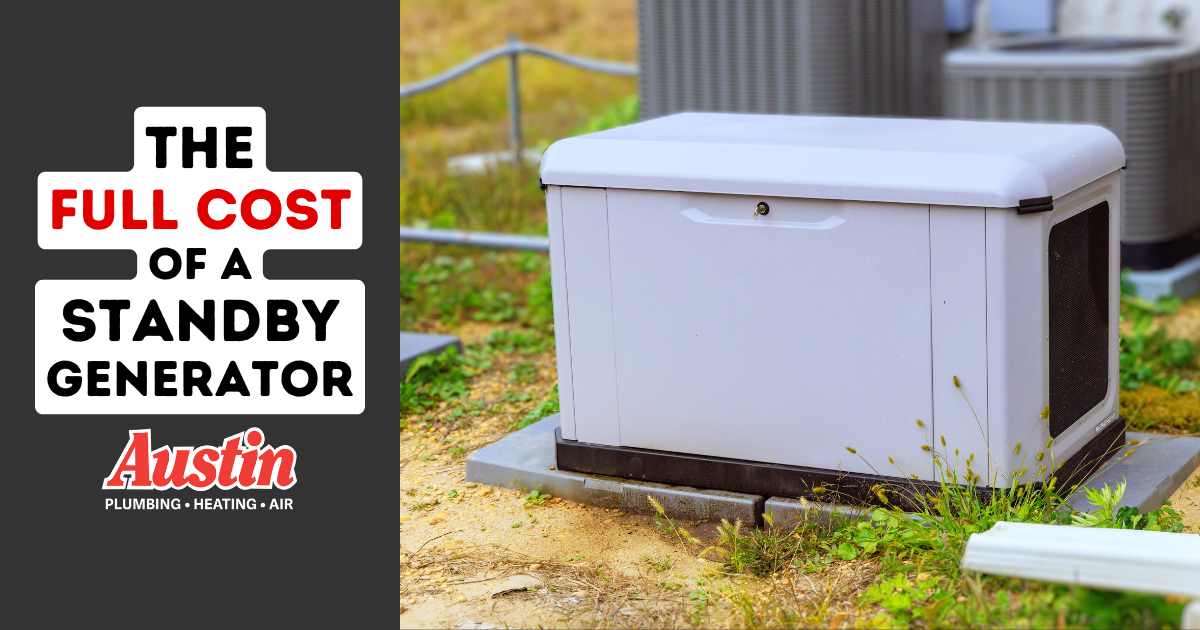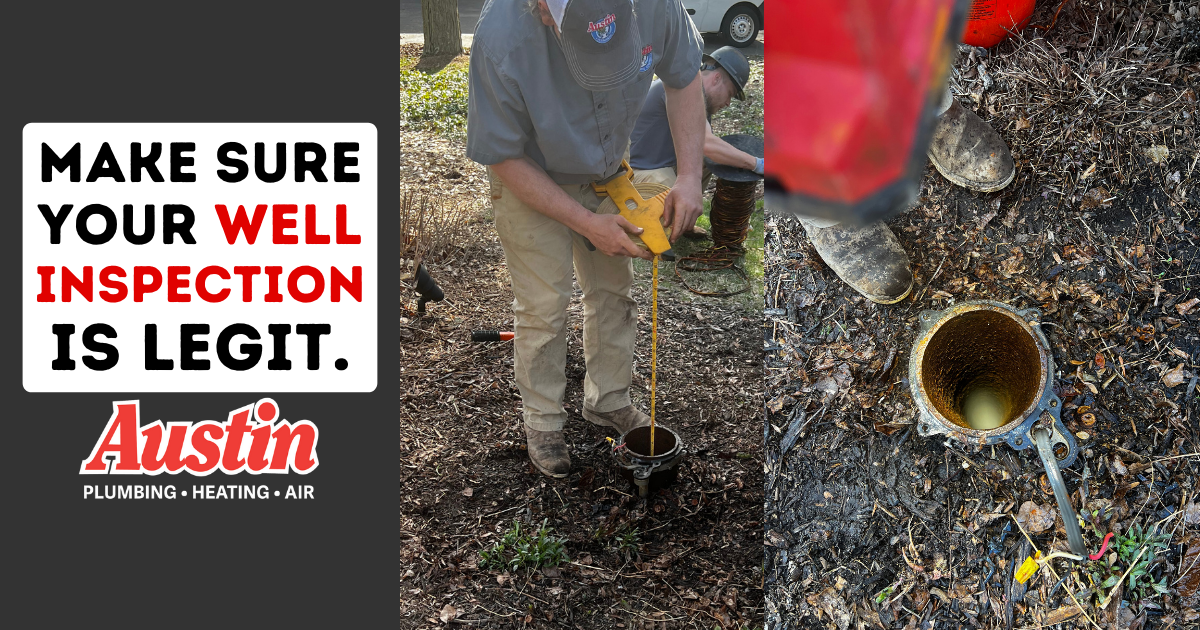How Often to Add Salt to Your Water Softener
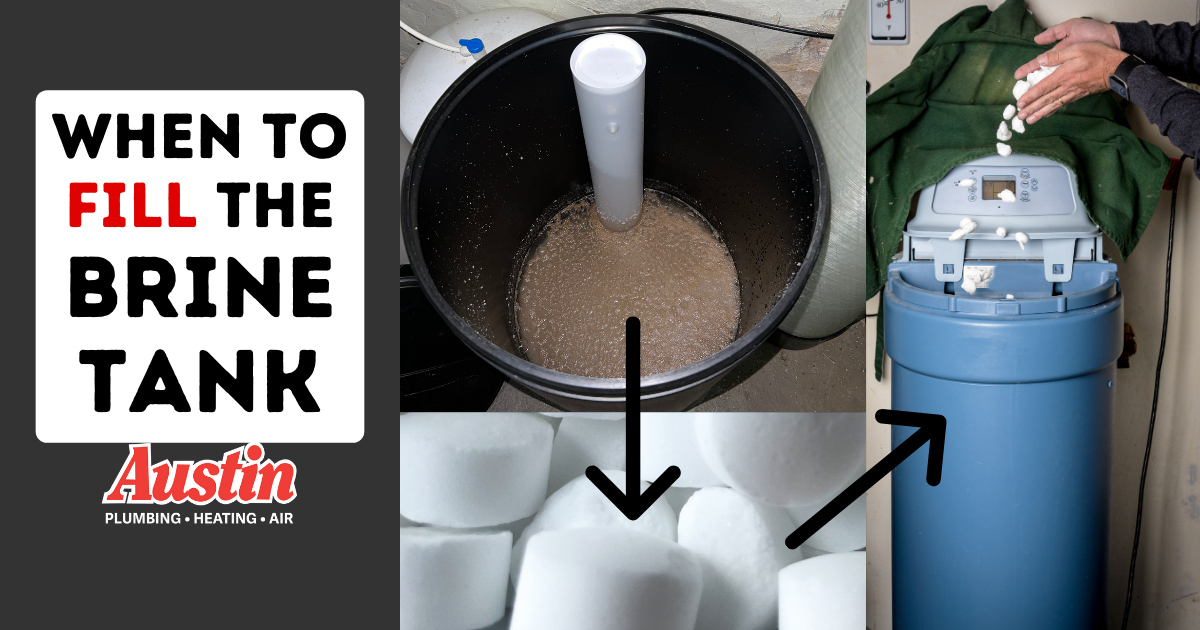
When and how often should you add salt to your water softener’s brine tank? Our Master Tradesman answers all your hard questions on soft water.
To figure out when to add salt to your water softener’s brine tank, you’ll have to take a few other things into consideration. Don’t worry; it’s less complicated than it sounds!
Three basic factors determine how often you should salt your water softener:
-
The size of your home (including how many people live in it, as this will affect water use).
-
The quality or hardness of the water in your area, measured in grains. (Fun fact: Wisconsin water hardness is usually 25-35 grains.)
-
The age of your water softener. Specifically, do you have an old, low-efficiency model or a newer, metered one? (For many other home appliances, you may have to choose between “cost-effective” and “environmentally friendly”, but metered water softeners are both.)
Don’t let your water softener run out of salt!
Your water softener probably hangs out in your basement, but it shouldn’t be “out of sight, out of mind”. It’s easy to see how people can forget to check on it. But ignoring your water softener until you notice a distinct drop in home water quality isn’t the optimal strategy here. At that point, you may find it’s already too late to reverse course without paying for professional repairs.
To be clear, we’re not saying there’s nothing you can do to save a neglected water softener. It’s just better to stay ahead of the game. The fact is that you can avoid many water softener issues by simply doing regular checks and maintenance.
Bottom line: don’t wait until your water starts to taste weird or stops lathering. By that time, you may venture into the basement just to find that the water softener is totally empty of brine.
What the heck is brine?
If you’re neither a sailor nor a plumber, you may not be familiar with this word. No problem. “Brine” simply refers to a super salty solution. In other words, it’s water that is very highly saturated with salt. Water softeners introduce brine into hard water in order to soften it, resulting in a minimally salty, maximally soft, drinkable, bathable water quality for use in everyday life.
What exactly happens if you let your water softener run out of salt?
A number of troubles customers face can be attributed to letting their water softener run out of salt! For example:
- Appliance-specific issues. First of all, running out of salt-which is instrumental in softening water-is not only bad for your water quality; it’s also stressful to the water softener itself. Water softeners regenerate, which is to say they clean themselves out every now and then. Putting off that process until the proverbial “last minute” can really make it hard for the appliance to do its job.
That’s because of a process called “channeling”. If left without salt for long enough, the water softener media will accumulate a thick layer of buildup of hardness-causing minerals. At this point, refilling the brine tank and a normal regeneration won’t be enough to return the softener media to normal working order. - Plumbing problems. Hard water creates all kinds of plumbing issues, which can even affect your water heater. But that’s not all! It’ll also cause your dishwasher to malfunction or, at the very least, you may notice dishes just don’t seem to come out as clean as they used to. Other home water aesthetics are also affected, like whether your hand soap actually lathers so you can properly clean your hands after a restroom break.
- Bad for skin and how it feels. The high mineral content in hard water tends to strip the skin of its natural oils, which particularly impacts the delicate skin of the face and hands. Since hands get washed many more times a day than other body parts, it can quickly cause painful dryness and skin cracking. To make matters worse, hard water is really bad at washing away soap. You can actually end up with super dry hands that feel inexplicably…slimy. No, thank you!
How to Estimate Water Softener Salt Use (with Math!)
(Go here to learn where these estimates come from.)
If you’re not big on charts and numbers, simply continue reading below for a nutshell summary of what this data means for you.
Keep up with Salt Usage: Get to Know the Rhythm of Your Home
According to our 80+ years of industry experience, corroborated above by the EPA’s official statistics, most water softeners use between 80 and 120 pounds of salt per month. You can think of this in terms of buying two or three 40-pound bags of salt per month.
Most homeowners in Wisconsin use two or three 40-pound bags of salt per month. I recommend our clients check the salt level at least once a month and add two 40-pounds bags of salt at that time.
Some Tips for Keeping Track
- Set a reminder on your phone to check the salt level on at least a monthly basis.
- Alternatively, if you make grocery trips on a more regular basis-say, every two weeks or so-why not keep it on your shopping list?
- You also have the convenient option of subscribing to a salt delivery service.
When adding salt, how high should the salt level be?
- As a general rule, the salt level should always be 4-6″ above the salt grid. (The salt grid holds the salt up off the bottom of the tank by a few inches so that the softener can always draw the brine solution back into the tank.)
- You should also make sure not to overfill your tank. Leave a few inches from the top of the brine fill tube, which is located inside the brine tank.
- One final rule of thumb: Keep the brine tank ¾ of the way full with good quality salt. If you do this, you’re golden.
What Kind of Softener Salt to Use
There’s a whole bunch of different salt options out there-some with additives, some claiming to remove iron.
- We caution clients to avoid softener pellets and blocks, which can lead to bridging (clumping together) and other maintenance issues.
- Our recommendation is to use a high-quality salt crystal, typically called solar salt. Salt crystals are the purest form of water softening salt. As such, they tend to do a better job and don’t cause issues like bridging.
Flash FAQ: Quick Answers about Water Softener Salt
How long does a 40lb bag of salt last?
Conservative estimate: three weeks for the average homeowner in SE Wisconsin.
What happens if my softener runs out of salt?
The first consequence is obvious: water you use would no longer be softened. Besides that, when a water softener runs without any brine to draw from, it ends up fouling the softener media (also called resin). If prolonged, this can ultimately make your water softener worse for wear, even after you finally refill it.
How much salt does a water softener hold?
The brine tank in a typical water softener holds about 250 lbs of salt. Store-bought/off-brand water softeners often have smaller salt tanks and therefore hold a little less salt.
Does a water softener use more salt if you are on a well?
Short answer: Nope!
In Southeastern Wisconsin, most of our city water is taken from large wells anyway, so its hardness is similar to that of privately-owned wells. Therefore, there’s no extra need for salt replenishment. (It also doesn’t have to regenerate any more frequently.)
However, misapplication can cause water softeners to consume more salt than necessary. For example, some installers cut corners by increasing a water softener’s salt use in order to expedite iron removal. The water softener wasn’t designed to do this in the first place. As a consequence, not only is it ineffective, but also bad for the appliance.
Asking a water softener to do double duty like this just shortens its life. A properly installed and maintained water softener should last 12-15 years (assuming the water is not ravaged by chlorine, and well water luckily isn’t). That’s why the proper course of action is to make sure your water softener is paired with a real iron filter on installation.
Why isn’t my water softener using the salt I put in it?
There could be a number of reasons for this phenomenon, but it’s most often the result of neglecting basic maintenance items. Salt tank bridging and plugged ports in the softener head are common examples of causes when a water softener refuses to utilize its salt.
In a scenario like this, other mechanical breakdowns are always a possibility. If your water softener is running but the brine level never seems to lower, your best bet is to give us a call at 262-367-3808. We’re happy to come by and troubleshoot, as well as make any necessary repairs to your water softener so you can get back to enjoying life with soft water.
